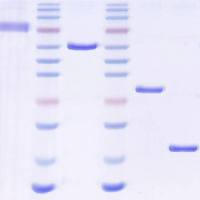Transposon-Based and Plasmid-Based Genetic Tools for Editing Genomes of Gram-Negative Bacteria
互联网
互联网
相关产品推荐

脱铁转铁蛋白,狗血浆,≥95%(SDS-PAGE), Iron content: <100 ug/gram,阿拉丁
¥840.90

Aedes aegypti Bacteria-responsive protein 1 重组蛋白表达
¥2000

APOBEC3A/APOBEC3A蛋白Recombinant Human DNA dC->dU-editing enzyme APOBEC-3A (APOBEC3A)重组蛋白Phorbolin-1蛋白
¥1344

Recombinant-Zygosaccharomyces-rouxii-Genetic-interactor-of-prohibitin-7-mitochondrialGEP7Genetic interactor of prohibitin 7, mitochondrial
¥10934

DAR-4M,A rhodamine-based photo-stable nitric oxide (NO) fluorescent indicator with a detection limit of ~10 nM.,阿拉丁
¥8310.90
相关问答

